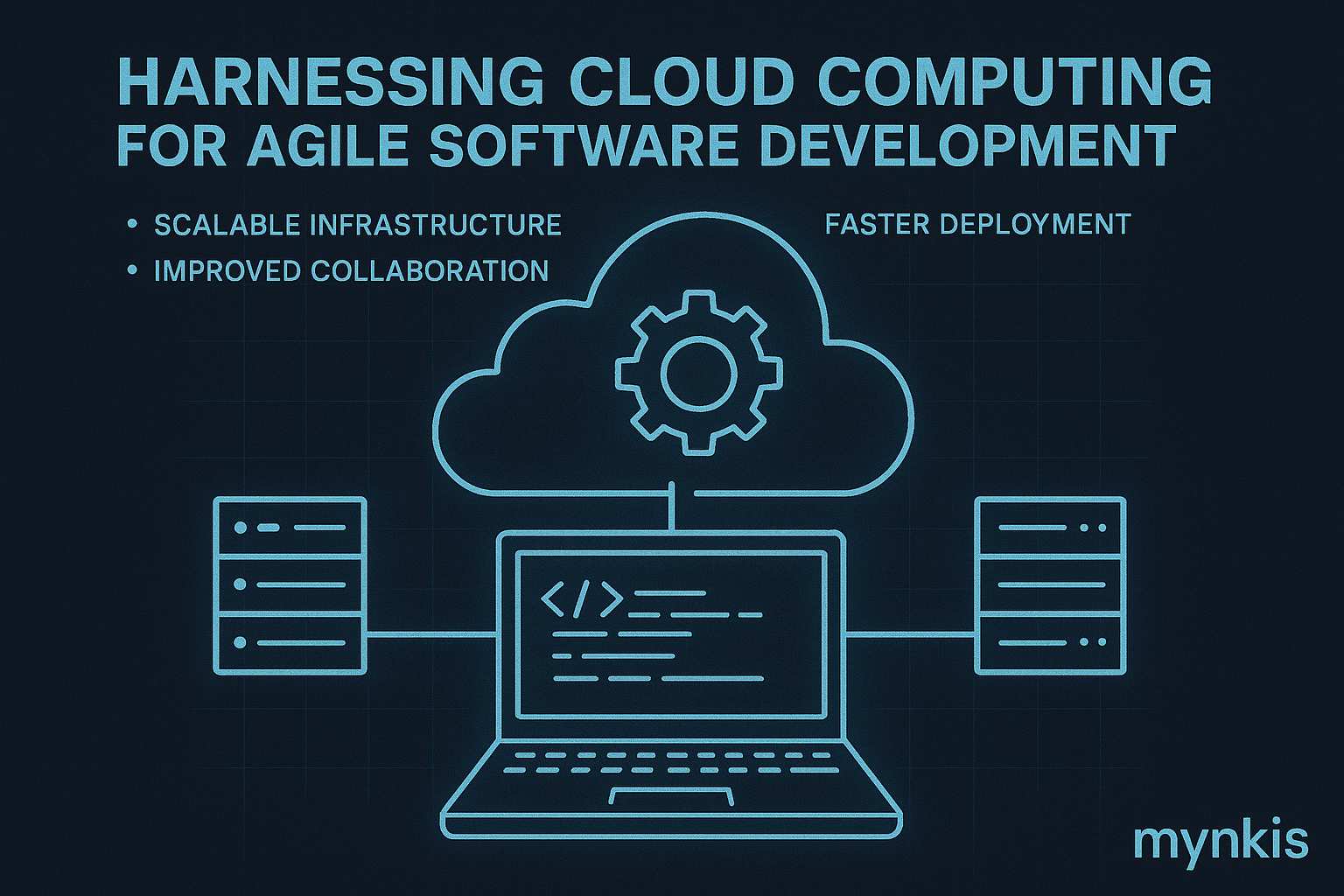Schedule a Demo
Cloud computing has reshaped how software development teams operate, offering a flexible, scalable infrastructure. In my years working with software developers, I've noticed a significant shift towards leveraging cloud services to facilitate collaboration and accelerate development cycles. The ability to instantly access powerful computing resources without the need for substantial physical infrastructure is game-changing.
For business owners aiming to establish a dynamic online presence, cloud computing can be a cornerstone of custom software development. It allows teams to develop, test, and deploy applications rapidly, adapting quickly to market demands and user feedback. I've worked on projects where the cloud enabled us to introduce features in real-time, ensuring our clients' websites were as agile and responsive as their business strategies.
Furthermore, cloud environments foster better collaboration. Development teams can work from anywhere, leveraging tools like GitHub, Google Cloud Platform, or AWS to collaborate on code, manage versions, and ensure everyone's on the same page. This connectivity proves invaluable for SMEs with limited resources looking to make an impact online with custom solutions.
Website speed is a key factor in SEO. Cloud services, with their inherent scalability, can significantly enhance a site's performance. As cloud infrastructures can automatically scale up during peak traffic periods, businesses experience less downtime and faster load times, contributing to better SEO rankings. In my experience, shifting a site to the cloud improved its SEO, directly leading to increased organic traffic for clients.
When it comes to cost, cloud computing levels the playing field for businesses of all sizes. Paying for resources as they are used, rather than large up-front investments, allows smaller businesses to access high-end computing capabilities at a fraction of the cost. This model also dovetails nicely with SEO strategies aimed at driving growth over time, aligning budget with performance.
A noteworthy example of cloud computing's impact on custom website development is a project I worked on for a retail startup. By leveraging AWS, we could instantly scale our application's database as user traffic increased during their holiday sale. This not only prevented system crashes but also boosted customer satisfaction through an uninterrupted shopping experience.
Another case involved a legal firm aiming to reach a broader audience. By moving to a cloud-based CRM and website platform, we managed to reduce the firm's operational costs while enhancing the website's SEO. The firm saw a significant uptick in organic leads as a result of better site performance.
Security is often a primary concern for business owners venturing into the cloud. Reputable cloud services offer robust security features that can exceed those of in-house systems, including data encryption and regular security audits. While challenges exist in understanding compliance across different cloud services, the investment into learning can pay off with substantial peace of mind.
Continuous Integration (CI) and Continuous Deployment (CD) practices are supercharged by cloud computing. These methodologies are essential for maintaining an agile development cycle, crucial for custom website performance and SEO optimization. The automation of build and deployment processes in the cloud reduces human error and speeds up the iterative process, helping businesses keep their websites up to date and optimized.
The scalability of cloud infrastructure is a defining feature. For business owners, this means their websites can handle unexpected surges in traffic without the need to panic over system failure. I've seen instances where a client's website received viral attention overnight, and the cloud infrastructure managed the load seamlessly, keeping user experience top-notch and their SEO intact.
Environmental considerations are increasingly part of the dialogue around technology. Cloud data centers have greater energy efficiency compared to many private data centers. Choosing to build custom software on the cloud can be aligned with a business's commitment to sustainability. This approach not only modernizes a company's operations but can also enhance its brand image among eco-conscious customers.
Cloud computing simplifies the hiring process within software development teams. The flexibility to use various collaboration tools in a cloud environment means businesses can more easily integrate remote talent into their projects. This is crucial for small business owners who might look to beef up their web development team to enhance SEO and custom website features without the limitations of geography.
Staying current with technology is not just a choice; it's essential for competitive edge. As cloud technologies evolve, the toolset available for custom software development grows more powerful. Adopting cloud technologies today positions businesses to take full advantage of these future advancements, keeping their custom web solutions at the forefront of innovation and SEO excellence.
Embracing cloud computing in software development isn't without its hurdles. Learning curves for new systems, potential data migration issues, and dependency on internet connectivity are common concerns. Yet, these challenges can be met with careful planning and strategies tailored to a business's unique context. Based on available research, addressing these concerns effectively can lead to successful cloud transitions, though individual results may vary.
The future of custom website development through the cloud looks bright. With ongoing advancements in artificial intelligence, machine learning, and the Internet of Things (IoT), cloud environments offer a rich playground for development teams. Keeping an eye on these trends helps business owners prepare their online strategies, leveraging SEO to drive organic growth and ensure they remain at the cutting edge of their industry.
